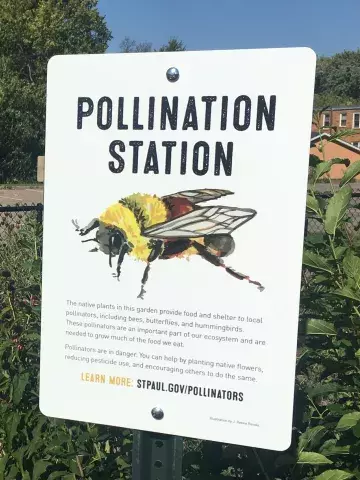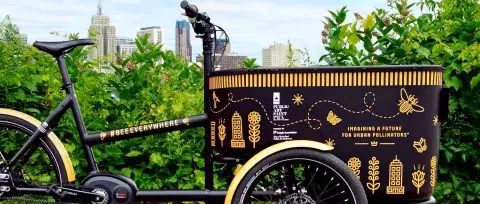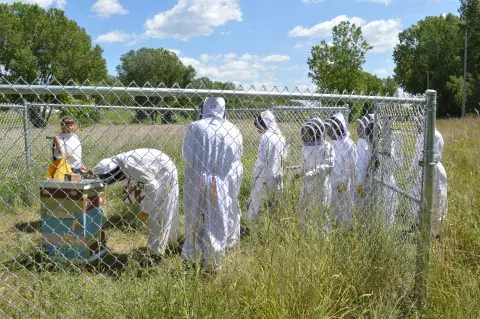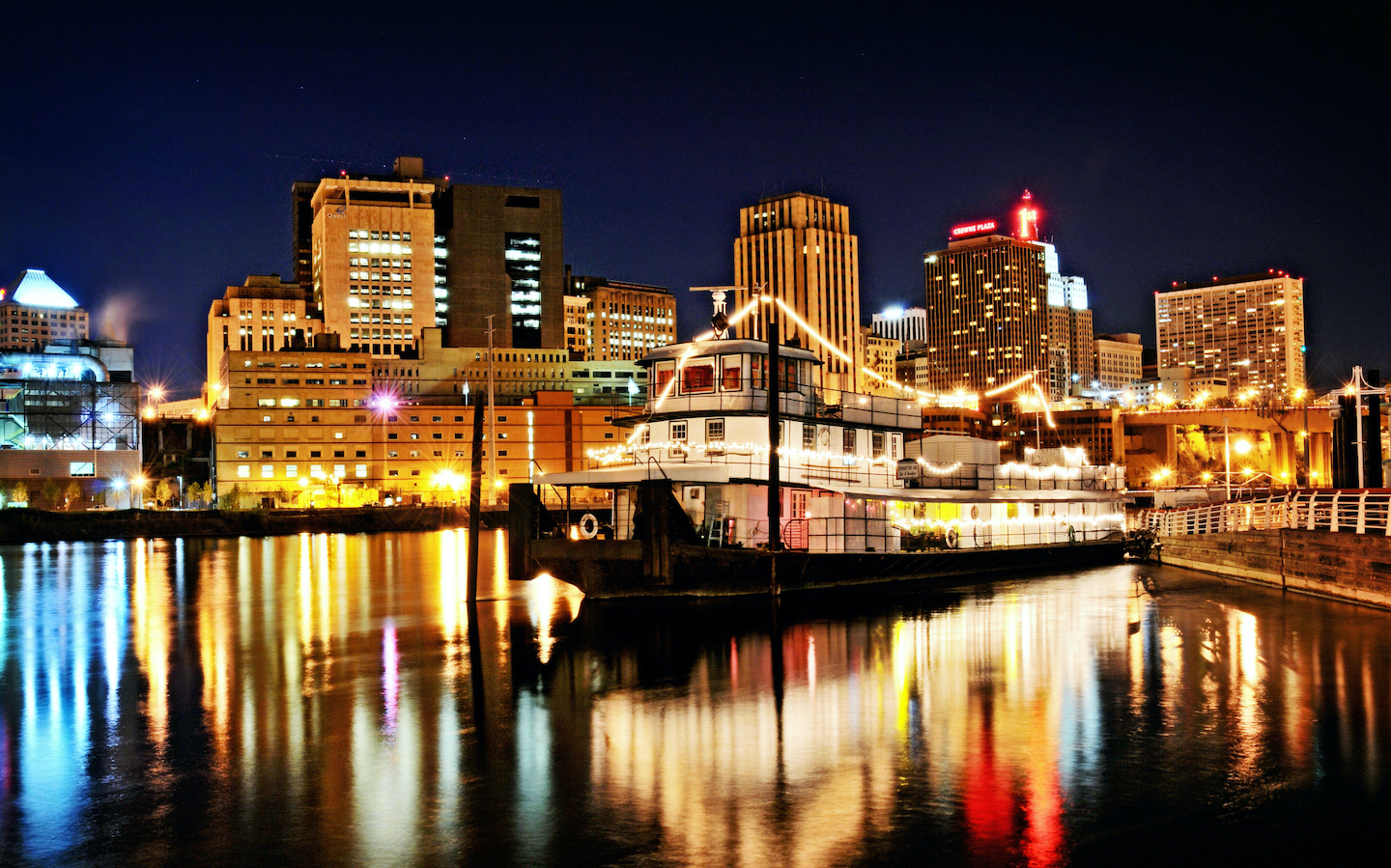Education and Engagement Initiatives
Pollination Stations
The Pollination Station program is a network of pocket pollinator gardens throughout the city that serve as demonstration gardens and living classrooms at public sites with youth programming. Youth and youth workers may utilize Pollination Stations for gardening activities, community science projects, ecology games, and more.

Bee Real Bee Everywhere
Saint Paul's two-year public art project, "Bee Real, Bee Everywhere," launched in 2017 and aimed to inspire conversation about the plight of pollinators in our community. The outreach cargo bike accompanying the project, called "The Office of Urban Pollen Exchange," visited libraries, parks, and community events for bee education activities. In 2017 alone, the project traveled over 150 miles to 30 events across St. Paul!

Bruce Vento Nature Sanctuary Apiary
In the summer of 2015, the City and University of Minnesota Bee Lab installed an experimental apiary in an enclosed area of the nature sanctuary. The apiary, besides helping Bee Lab researchers better understand honeybee health, is used as an educational tool for educating people of all ages about the essential role that bees and other pollinators play in agricultural production.

